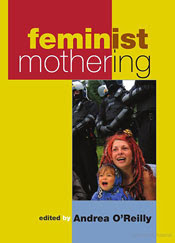From the FLP mailbox, this call for participation in the 2009 LatCrit Conference:
Please join us at LatCrit XIV, the Fourteenth Annual LatCrit (Latina and Latino Critical Legal Theory, Inc.) Conference, which will take place in Washington, D.C., from Thursday, October 1 through Sunday, October 4, 2009. The program’s theme is “Outsiders Inside: Critical Outsider Theory and Praxis in the Policymaking of the New American Regime.”
The LatCrit/SALT Junior Faculty Development Workshop will run concurrently. It will begin at 9:00 am, Thursday, October 1st and continue through Friday morning.
In October 2009, LatCrit will meet inside the Beltway for the first time in its history amidst a tectonic shift in American government. With the January inauguration of President Barack H. Obama, the nation’s first”outsider”president, we also saw the ascendance of a new progressive governance philosophy in Washington. As a biracial former law professor with working class and immigrant roots and an international and multicultural upbringing, Mr. Obama ran a progressive campaign that echoed many core LatCritical values, including internationalism and global-mindedness, the valorization of human rights and multidimensional diversity, the centrality of antidiscrimination work, a commitment to rigorous interrogation of longstanding dominant assumptions and norms, and a preference for discourse and dialogue over militarism. Notably, President Obama’s Yes We Can! campaign slogan has its roots in the ¡Si Se Puede! rallying cry coined by Dolores Huerta of the United Farm Workers movement and invoked in more recent progressive and mostly Latino/a political actions.
The new Presidential administration and enlarged bicameral Democratic majority in Congress account only for part of the historic paradigmatic transition in American national government. The ongoing deterioration of the American and world economies also has catalyzed an aggressive reassessment by moderate and even some conservative thinkers of the wisdom of the Reagan Revolution’s uber alles dependency on the private marketplace for the realization of the public good – an antiregulatory disposition that dominated federal government through the last seven presidential administrations. In the United States, the failure of the government’s dominant antiregulatory disposition to prevent the ensuing economic meltdown has catalyzed a new, aggressive Federal response in the form of much more statist economic interventions, including the de facto nationalization of key economic components. To add irony, it was the administration of President George W. Bush – the loudest in exalting the power of unbridled private marketplaces to regulate themselves – that laid the foundation for the national takeover of large sectors of the financial services and banking industries.
These quantum changes in the leadership and driving philosophies of American government present unique and in some cases unprecedented opportunities for scholars engaged in critical outsider scholarship to influence and inform national policy and legislation. The new executive and legislative branch incumbents have telegraphed early receptivity to the instantiation of LatCritical and other progressive theories and principles in the tangible products of Federal government (i.e., legislation, regulation, presidential directives, and, of course, caselaw). As President Obama’s aspirational campaign continues to transition into the nouveau regime at the helm of the most powerful government on Earth, millions of Americans expect the vague Yes We Can promise to become the Yes We Are reality.
But with these openings come potential pitfalls. Although the ascendance of a putatively progressive president and likeminded Congressional majority indeed may open up new opportunities to bridge the theory/praxis chasm, it also may pose serious challenges to the independence and even legitimacy of progressive critical theory movements. Should the cooption or even distortion of conservative theory by militaristic, extremist partisan politicos serve as a cautionary tale in the formation of new relationships between the progressive government and outsider critical theorists? More specifically, what if the first year in office of the Yes We Can presidential candidate unfolds into more of a No We Won’t disappointment? What if the exigencies of governing to and from the middle – which many pundits insist is the sine qua non for reelection viability – result in the sacrificing of Obama’s progressive promise? What roles should outsider critical legal scholars and their scholarship assume then? More generally, what should the incarnation of progressive theory in the new American regime look like? And what prevents that theory from being co-opted and corrupted by the corroding influences of insider power?
The LatCrit XIV Host Committee invites the submission of proposals for panels and papers related to this open-textured theme and encompassing the fullest array of theoretical and doctrinal topics and approaches. Because we will be in Washington, DC, we encourage the submission of paper and panel proposals propounding prescriptive critiques of discrete areas of law, policy and regulation of specific relevance to outsider communities, including (but by no means limited to) economic justice, international and comparative law, criminal law and the death penalty, civil rights and constitutional law (including gender and LGBT equality, reproductive and disability rights), immigration, political and electoral (dis)enfranchisement, communications policy and intellectual property, healthcare, education, employment, tax policy, and the environment. We also, of course, welcome proposals for more theoretical panels and papers, particularly (but not exclusively) in areas linked to the challenges posed by progressive governance and the ascendance of outsiders to positions of ultimate authority.
Please submit your panel and paper proposals through the online process at the LatCrit website (www.law.du.edu/latcrit/index.htm) no later than MONDAY, APRIL 27, 2009. Please note that although paper proposals for work-in-progress sessions may be submitted now, we will continue to accept those proposals through mid-July (please refer to LatCrit website for forthcoming additional details).
Standing LatCrit Themes
LatCrit conferences seek to feature and balance four basic perspectives in organizing each annual conference’s substantive program. These four perspectives are listed as themes below. They have, thus far, served as useful lenses of LatCritical inquiry, enabling LatCrit scholars to develop an impressive body of work that increasingly links issues of identity to the substantive analysis of law, policy and process. This effort to link identity issues to substantive analyses has been particularly fruitful in revealing the way race and ethnicity are implicated precisely in those areas of law and policy that are ordinarily thought not to be about race and ethnicity: for example, in the operations and assumptions of international law and legal process, foreign affairs, liberal democracy, religion and sexuality, to name just a few areas of recent LatCrit attention.
To build on these accomplishments, everyone is encouraged to develop their proposals with a view to: (1) expanding our understanding of the impact of race and ethnicity in substantive areas of law and policy ordinarily thought to be about “something other than race” (e.g. issues of sovereignty, labor rights, globalization, intellectual property, antitrust law); and (2) deepening our analysis of the various ways in which identity issues intersect, conflate and conflict in our self-understandings and coalitional efforts. The following four themes are offered, therefore, as possible points of reference for thinking in new ways about familiar issues (like affirmative action and bilingual education), as well as for encouraging critical forays into new substantive areas (like communications or antitrust laws):
1) Papers or panels that focus on the multidimensionality of Latina/o identity and its relationship to current legal, political and cultural regimes or practices. The ideal is to explicate aspects of the Latina/o experience in legal discourse, both domestically and internationally. Nonetheless, you are free to address identity issues that do not specifically touch upon Latina/o identity or the law.
2) Papers or panels especially salient to this region (the East Coast). Regional emphasis ensures that the Conference’s geographic rotation will illuminate local issues, helping us understand how local particularities produce (inter)national patterns of privilege and subordination.
3) Papers or panels that elucidate cross-group histories or experiences with law and power, such as those based on the intersections of class, gender, race, sexuality and religion. In this way, each Conference aims to both elucidate intra-Latina/o diversities and contextualize Latina/o experience within inter-group frameworks and Euro-Heteropatriarchy. Accordingly, we constantly ask how we can create progressive movements, communities and coalitions that meaningfully recognize difference.
4) Papers or panels that connect or contrast LatCrit theory to other genres of scholarship, both within and beyond law and legal theory, including but not limited to the various strands of critical outsider jurisprudence (critical race theory, feminist legal theory, queer legal theory) that critique class, gender, race, sexuality and other categories of social-legal identities and relations.
The Sponsoring Institution is American University Washington College of Law.
And this isn’t in the official “call,” but I know based on past conferences and conference participants that feminist perspectives are very, very welcome.
-Bridget Crawford



 From the
From the 

 Feminist Law Prof Beth Burkstrand-Reid (Illinois) has posted to SSRN her working paper
Feminist Law Prof Beth Burkstrand-Reid (Illinois) has posted to SSRN her working paper 







 Kathleen Bergin, friend, Feminist Law Prof, and blogger at
Kathleen Bergin, friend, Feminist Law Prof, and blogger at  Today the William & Mary Journal of Women and the Law hosts its symposium, “
Today the William & Mary Journal of Women and the Law hosts its symposium, “ Feminist Law Prof
Feminist Law Prof